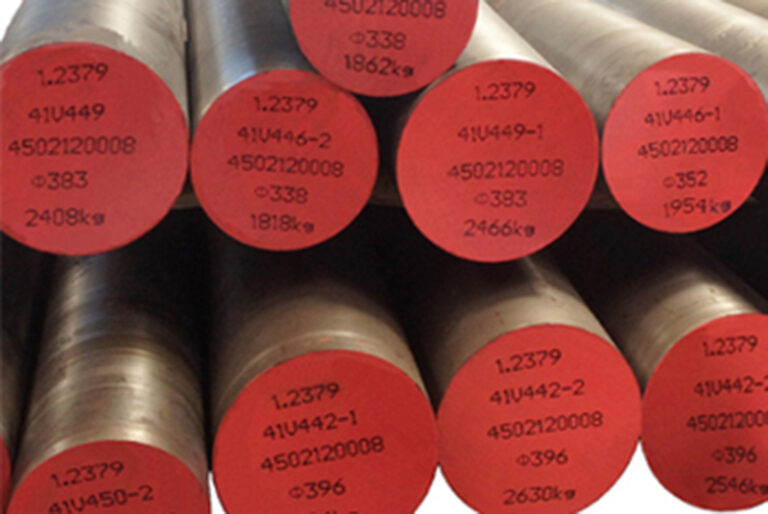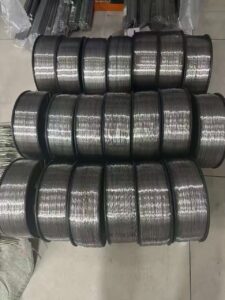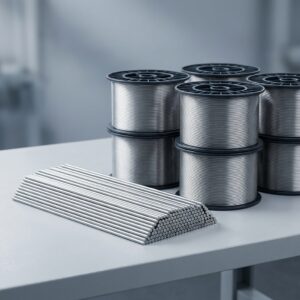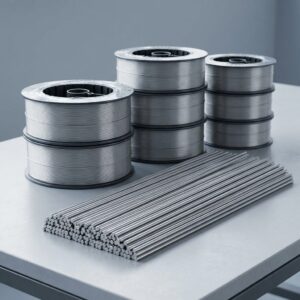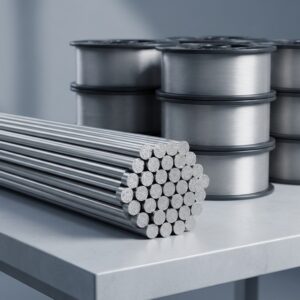Unveiling the Marvels of D2/1.2379 Tool & Mould Steel: A Comprehensive Exploration
Introduction
In the realm of tool and mould materials, certain alloys emerge as pillars of innovation and reliability. Among them stands D2/1.2379 Tool & Mould Steel, celebrated for its exceptional properties crucial for engineering applications. Join us as we embark on a journey to uncover the intricacies and advantages of this remarkable material, delving into its composition, properties, applications, suppliers, pricing, and expert insights.
Overview of D2/1.2379 Tool & Mould Steel
D2/1.2379 Tool & Mould Steel stands out for its excellent combination of hardness, toughness, and wear resistance, making it a versatile choice for various industrial applications.
Chemical Composition
| Element | Percentage |
|---|---|
| Carbon (C) | 1.40-1.60% |
| Chromium (Cr) | 11.00-13.00% |
| Molybdenum (Mo) | 0.60-1.20% |
| Vanadium (V) | 0.10-0.60% |
| Silicon (Si) | 0.10-0.60% |
| Manganese (Mn) | 0.10-0.60% |
| Phosphorus (P) | 0.03% max |
| Sulfur (S) | 0.03% max |
Mechanical Properties
- Hardness (Rockwell C): 58-62 HRC
- Tensile Strength: 600-700 MPa
- Yield Strength: 310-380 MPa
- Elongation: 10-15%
Standards
- AISI D2: American Iron and Steel Institute standard for tool steels
- DIN 1.2379: Deutsche Industrie Normen standard for tool steels
Exploring the Features and Advantages
D2/1.2379 Tool & Mould Steel boasts a plethora of features and advantages that make it an ideal choice for engineering applications.
Features
- Excellent wear resistance and toughness
- High compressive strength and edge retention
- Good machinability and dimensional stability
- Suitable for cold work applications and precision tooling
Advantages
- Widely used in applications requiring high wear resistance, such as blanking, forming, and cutting tools
- Provides reliable performance in demanding environments, including metal stamping, injection moulding, and die casting
- Offers cost-effectiveness and ease of heat treatment for optimizing properties
Comparison Between D2/1.2379 Tool & Mould Steel and Competing Materials
Let’s compare the advantages and disadvantages of D2/1.2379 Tool & Mould Steel with a competing material, Alloy X:
| Parameter | D2/1.2379 Tool & Mould Steel | Alloy X |
|---|---|---|
| Hardness | Very High | Moderate |
| Toughness | High | Low |
| Machinability | Good | Poor |
| Cost | Moderate | Higher |
Applications and Uses
From metalworking to plastic moulding, D2/1.2379 Tool & Mould Steel finds widespread application in various industries.
| Industry | Applications |
|---|---|
| Metalworking | Punches, dies, cutting tools |
| Plastic Moulding | Injection moulds, extrusion dies |
| Woodworking | Planer blades, woodworking tools |
Navigating Suppliers and Pricing
Sourcing D2/1.2379 Tool & Mould Steel requires careful consideration of reliable suppliers offering quality products at competitive prices.
| Supplier | Price Range (per unit) | Description/Notes |
|---|---|---|
| Bohler Uddeholm | $10 – $20 per kilogram | Leading global supplier of tool steels |
| Crucible Industries | $12 – $25 per kilogram | Specializes in high-performance alloy steels |
| Carpenter Technology | $15 – $30 per kilogram | Offers a wide range of specialty metal products |
FAQs about D2/1.2379 Tool & Mould Steel
Q: Can D2/1.2379 Tool & Mould Steel be heat treated?
A: Yes, it can be heat treated to achieve desired mechanical properties, such as increased hardness and wear resistance.
Q: What are the common applications of D2/1.2379 Tool & Mould Steel?
A: Common applications include punches, dies, cutting tools, injection moulds, and extrusion dies.
Q: Where can I buy D2/1.2379 Tool & Mould Steel?
A: You can source D2/1.2379 Tool & Mould Steel from reputable suppliers such as Bohler Uddeholm, Crucible Industries, and Carpenter Technology.
Q: What specifications does D2/1.2379 Tool & Mould Steel conform to?
A: This tool steel conforms to standards such as AISI D2 and DIN 1.2379, ensuring compliance with stringent quality requirements.

